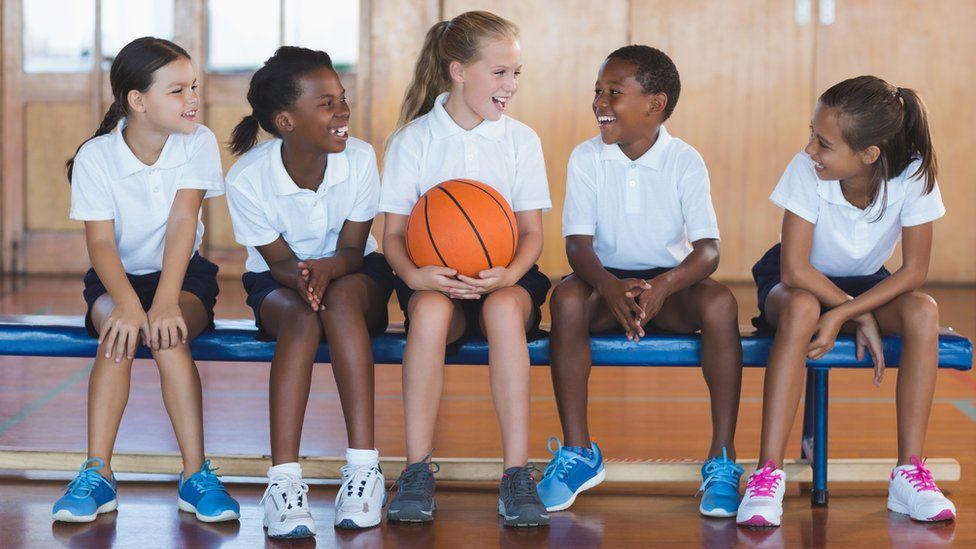PE 'Cinderella subject' for too long, says report
- Published

The status of physical education in schools needs a "radical shake-up" and it should be valued in the same way as core academics subjects, a report says.
A study by the All-Party Parliamentary Group (APPG) on a Fit and Healthy Childhood says PE has for too long been the "Cinderella subject" in UK schools.
The group recommends a personalised PE programme for each individual child.
The government said extra money given to primaries for PE was being used "to deliver more and better sport".
The APPG report says PE is key to developing a life-long passion for physical activity and to reducing levels of obesity.
It says PE for the 21st Century should reflect the many ways children can express themselves physically and should move away from "skill drill lessons".
And children should be given greater opportunity to explore what sort of alternative physical activity might suit them, using the natural and outside world as well as sports-specific environments.
The study says girls in particular can be put off by a focus on competitive sports and "run the risk of becoming disenfranchised from physical activity".
"This could be addressed by ensuring that PE lessons offer a wider type of physical activity, to cater for different tastes and abilities," it says.
"These might include general physical activity such as running and climbing, non-competitive activities such as yoga and dance and individual sports such as swimming."
The APPG report makes a wide range of recommendations, including:
- increasing the number of specialist PE teachers in primary schools
- having a designated physical activity co-ordinator in every early years setting
- creating teams in every school dedicated to promoting all types of physical activity
- all schools examining how they can improve the PE experience for disabled children
- embedding PE into all teacher training programmes
It says: "If PE is regarded as providing solutions for a variety of objectives (eg increasing academic attainment, improving behaviour), it should be valued as such.
"It should have the same status, credibility and funding as the core academic subjects."
The study adds: "If PE is to be treated on an equal basis with other subjects in the curriculum, care must be taken in assessing children's physical literacy, using nationally prepared guidelines that do not undermine a child's confidence and inhibit them from participating according to their own pace and individual needs in PE programmes."
Co-chair of the APPG Baroness Benjamin said PE was the missing link in the crusade to promote the health and wellbeing of children and combat the scourge of obesity.
"The long-term adverse effects of obesity and overweight in childhood are now generally recognised and people as well as organisations from all walks of life realise that failing to tackle it is not an option," she said.
"The need to combine sport with the knowledge of good nutrition and a healthy diet is now understood.
"But even though pockets of excellent practice exist, the importance of physical literacy has been largely disregarded, and this has to change for the sake of the nation's long-term future."
A Department for Education spokeswoman said: "We want to encourage all young people to get into the healthy habit of playing and enjoying sport - both inside and outside school.
"High-quality PE lessons play an important part in creating that habit, which is why we have already given primary schools over £450 million to spend on improving PE - and research shows they have used this to deliver more and better sport."
- Published14 February 2013